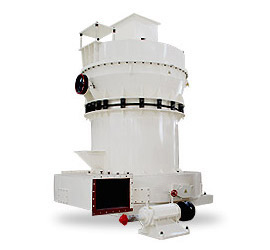In a single-stage Flue Gas Desulfurization (FGD) power plant, the slurry pump impeller is a critical component designed to handle abrasive and corrosive limestone or gypsum slurries. Here’s a detailed breakdown of its features, materials, and considerations:
Key Characteristics of FGD Slurry Pump Impellers:
1. Material Selection:
– High-Chrome Alloy (A49, CD4MCu, Cr30): Resists wear from abrasive particles (limestone/gypsum) and corrosion from acidic slurry (pH ~4–6).
– Rubber-Lined (Natural or Synthetic): Used in less abrasive conditions for better corrosion resistance.
– Ceramic Coatings: For extreme abrasion resistance in high-solids slurries.
2. Design Features:
– Open or Semi-Open Impeller: Minimizes clogging with solids but sacrifices some efficiency.
– Closed Impeller: Higher efficiency but prone to clogging; less common in FGD applications.
– Large Vane Passages: Reduce blockages from slurry particles.
– Balanced Hydraulics: Minimizes recirculation and cavitation damage.
3. Performance Considerations:
– Wear Resistance: Impellers must withstand constant erosion from slurry solids (e.g., 20–30% solids by weight).
– Corrosion Resistance: Must tolerate chlorides, sulfates, and low-pH environments.
– Efficiency vs. Durability Trade-off: Thicker vanes extend life but reduce hydraulic efficiency.
4. Common Failure Modes:
– Erosion on leading edges and vane tips.
– Corrosion pitting in low-pH conditions.
– Cavitation damage due to improper NPSH (Net Positive Suction Head).
5. Manufacturers & Standards:
– Leading brands: GIW (KSB), Weir Minerals, Goulds (Xylem), Schurco Slurry.
– Standards: ISO 5199, ANSI/ASME B73.3 for slurry pumps.
 Maintenance Tips:
Maintenance Tips:
– Regularly inspect for wear/corrosion; use ultrasonic thickness testing.
– Ensure proper alignment and seal flushing to e nd impeller life.
nd impeller life.
– Replace impellers in pairs with liners for optimal performance.
Selection Criteria:
– Slurry density, particle size, and pH.
–





Leave a Reply